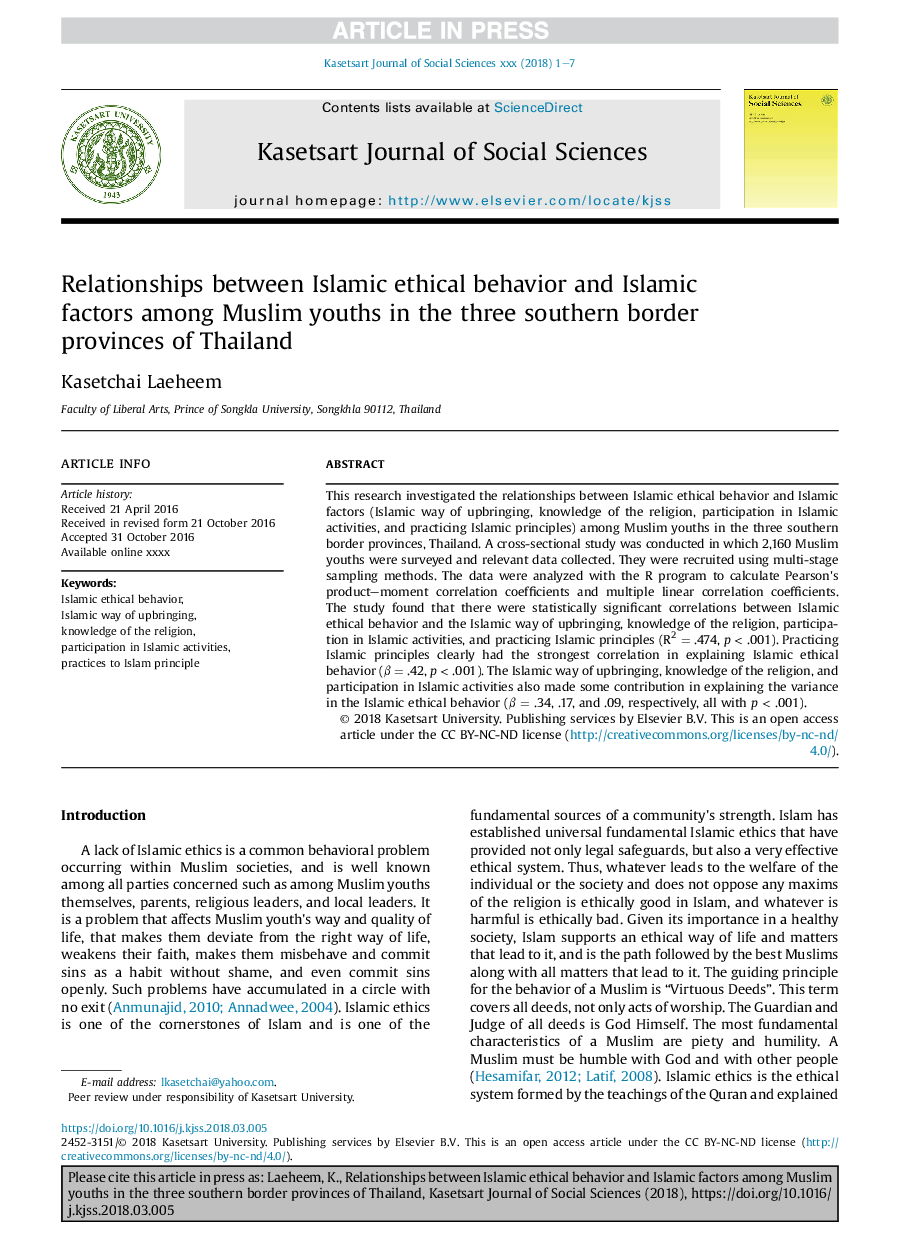| Article ID | Journal | Published Year | Pages | File Type |
|---|---|---|---|---|
| 6843932 | Kasetsart Journal of Social Sciences | 2018 | 7 Pages |
Abstract
This research investigated the relationships between Islamic ethical behavior and Islamic factors (Islamic way of upbringing, knowledge of the religion, participation in Islamic activities, and practicing Islamic principles) among Muslim youths in the three southern border provinces, Thailand. A cross-sectional study was conducted in which 2,160 Muslim youths were surveyed and relevant data collected. They were recruited using multi-stage sampling methods. The data were analyzed with the R program to calculate Pearson's product-moment correlation coefficients and multiple linear correlation coefficients. The study found that there were statistically significant correlations between Islamic ethical behavior and the Islamic way of upbringing, knowledge of the religion, participation in Islamic activities, and practicing Islamic principles (R2 = .474, p < .001). Practicing Islamic principles clearly had the strongest correlation in explaining Islamic ethical behavior (β = .42, p < .001). The Islamic way of upbringing, knowledge of the religion, and participation in Islamic activities also made some contribution in explaining the variance in the Islamic ethical behavior (β = .34, .17, and .09, respectively, all with p < .001).
Related Topics
Social Sciences and Humanities
Economics, Econometrics and Finance
Economics, Econometrics and Finance (General)
Authors
Kasetchai Laeheem,
